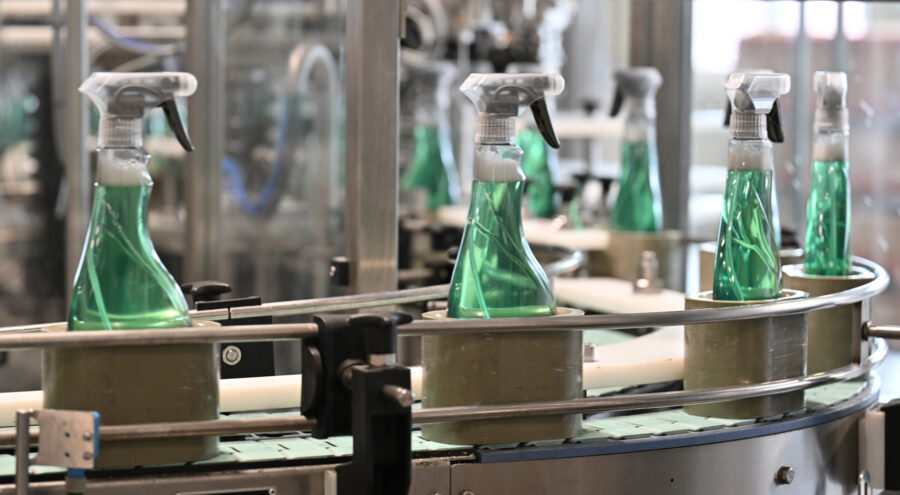
Political Measures
During a visit to Werner & Mertz headquarters in Mainz in March 2025, Anja Siegesmund, President of the (Federal Association of the German Waste Management, Water, and Recycling Industry), and W&M owner Reinhard Schneider demanded concrete measures aimed at speeding up the circular economy in Germany and Europe. Among them were the development of modern recycling technologies, protection of the internal market and strengthening the industrial business location.
Recycling facilities in foreign countries should be required to prove by means of independent audits that they meet European quality and environmental standards.
Only equivalent recyclate may enter the European Single Market.
Instead of making all consumers bear the burden of the plastic tax, the distributor of climate-damaging new plastic should pay the tax while Post-Consumer Recyclate remains tax-exempt. These measures generate an economic incentive for increased investment in recycling technologies.
The legal favoritism for new plastic—such as the exemption from the energy tax—should be terminated. Instead, funding should be redirected to support innovations in the recycling sector.
A fund should be set up into which all companies that use new plastic would pay. The funds should flow into research, development and the expansion of modern, high-quality recycling processes.
The increased protection of the European Single Market was the subject of recently published expert information (PLASTICS FOR THE CIRCULAR ECONOMY AND CLIMATE PROTECTION). Among other things, demands are made for fairer competitive conditions, support of regional value chains and improvement of waste management infrastructure.
Other demands made on the new German government
In addition to previously mentioned measures, the BDE said, after its discussion with Reinhard Schneider, that the new German government should take the following steps:
Demand for Recycling Research
Establishment of support programs that specifically promote innovative mechanical recycling technologies and the conversion of waste into high-quality products.
Optimization of Waste Infrastructure
Investments in modern collection and sorting systems to make the collection of post-consumer waste more efficient.
Establishment of a Binding Legal Framework
Legal minimum quotas for the proportion of recycled material in new goods should be introduced, coupled with incentives for exceeding the target by up to 100 percent, and binding quality standards for imported recyclate.
Support of European Recycling Systems
Support of European initiatives aimed at closing material loops in order to minimize dependence on fossil raw materials and their countries of origin.
Green Public Procurement as Strategic Lever
The public sector should promote the circular economy, for example, by including recyclate and recyclability criteria in public procurement requests for bids. The increased use of recycled raw materials contributes to resource sovereignty, makes production locations without their own primary raw materials less dependent on imports, and reinforces their resilience in the long term.


